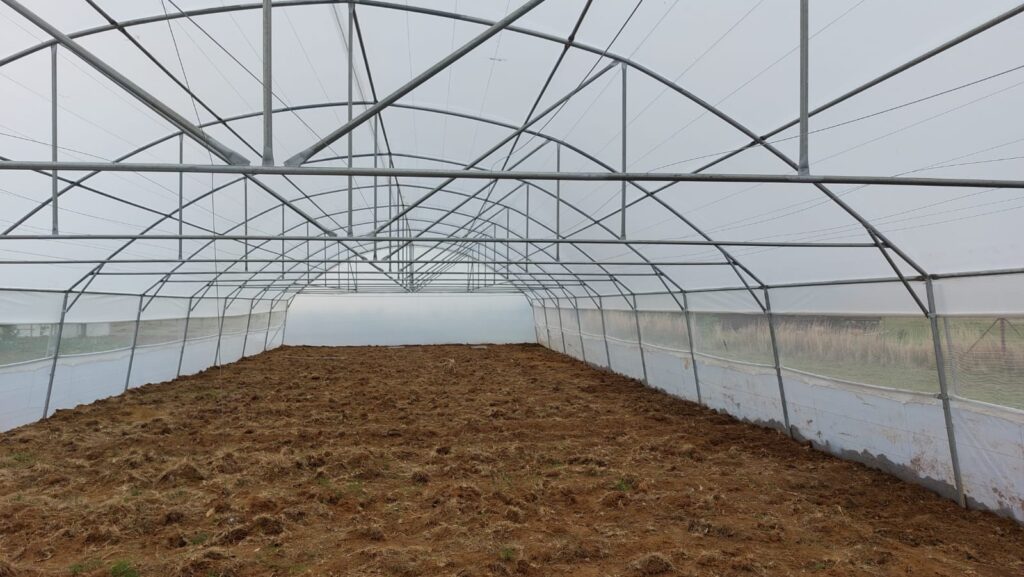And just like that we find ourselves in the middle of 2022, wondering where time went. If you speak to vegetable farmers all around the country, you will very soon notice that the bulk of farmers currently share quite a negative point of view. Diesel prices are rising, fertilizer prices are through the roof, it’s nearly impossible to find pesticides and herbicides at reasonable prices, and, with all this going down, the prices that farmers get for their products on the open market has not increased much in the past ten years.
Needless to say, morale is low, and all over farmers are looking for ways to save costs, cut costs and start making money.
For many years, tunnel farming has been regarded as one of the most effective ways to produce vegetables, but, with all the recent changes, farmers start questioning if it’s still worth spending all that capital on a greenhouse structure.
Let’s have a look at some of the main advantages of opting for a covered structure, in stead of producing crops on open lands:
1. Climate Control.
Since a greenhouse tunnel structure is covered with a plastic, you provide the crops with a controlled growing environment. By controlling the temperature in the structure, through ventilation or heating and cooling systems, an ideal environment can be created for ideal growth. A structure also makes it easier to control humidity and light / diffusion, and, to not skip the most obvious aspect, you protect your crop against weather extremes, such as frost, heat, wind, hail and rain!
2. Increased Yield.
The controlled environment provided, enhances crop production that is directly linked to an increased yield. Further to this, the average fruit quality is a lot better from tunnels, which allows you to bargain a larger profit margin.
3. Better space utilization.
Open land production generally requires a lower plant density, and space wasted on pathways for tractors and harvesters often poses a problem. Tunnel farming is an ideal solution to best utilize space. Add to that that a tunnel farm can be started off on a fairly small scale, and you cannot deny the pro’s of looking into tunnel farming.
4. Saves Water.
Accurate water administration can be the difference between a crop’s failure or success! Growing your plants in a tunnel allows you to control and apply water strictly when and where needed, resulting in a lot less water wastage. This is directly linked to a farmer’s financial success.
5. Better protection against pests and diseases.
A tunnel structure provides a definite level of protection against crop threats such as birds and insects. Furthermore, with the correct management, fungus infestations and diseases can be minimized by controlling the moisture levels, and accurately applying the correct herbicides and fungicides at the correct times on the necessary crops. Not only do you protect the plants in your tunnel, but you also protect other plants in other structures by limiting the spread of diseases.
6. Extended growing seasons.
This might be the biggest advantage of tunnel farming! With the correct management, a farmer can extend a growing season quite a bit by planting earlier and removing plants later than they would survive on open lands. Not only this, but with proper heating and cooling, crops can even be grown outside of the season! In general, out-of-season crops fetch a much better price, which will have a direct impact on the farmer’s success!
7. Saving on input costs.
As with water, the administration of fertilizers, pesticides and fungicides can be much better controlled and accurately administered inside a tunnel structure. This offers the farmer the opportunity, not only to save costs, but more importantly to better plan.
Ultimately, the combined benefits of tunnel farming far outweigh the risk! Farming in a controlled environment allows you to save on all fronts, while your plants are healthier, your productivity better and your crop quality top-notch. By being able to control some of the risk factors associated with vegetable farming, tunnel farming has proven to be more financially viable than some other conventional methods.
One of the biggest advantages of tunnel farming is that there are many options available, and anyone, from micro-setups to large scale commercial farms will find that there is a setup that will suit their individual needs. Size, material, control systems and irrigation systems are all examples of factors that can be customized to best suit your situation!
What are you waiting for? Your future in tunnel farming is waiting!

